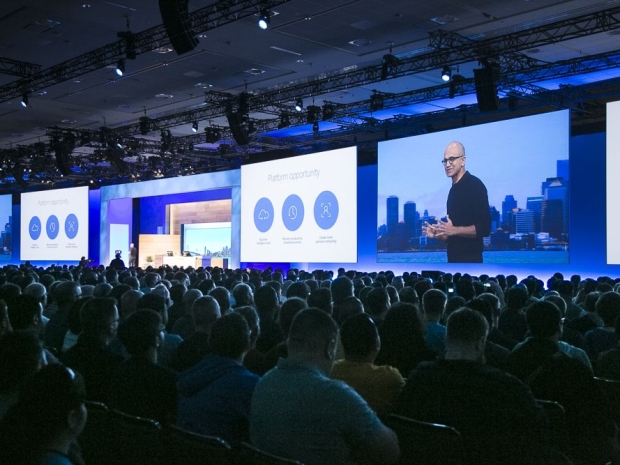At its annual Build conference in Seattle, the $3.4 trillion behemoth tried to steal a march on rivals by tying its future even more tightly to OpenAI, Nvidia and even Elon Musk’s xAI, all while promising developers new tools and plenty of choice.
Chief executive Satya Nadella opened the show with bold claims about a looming platform shake-up. “This is a platform that we want to create together. I think something big is going to shake out of this because this is not just a repeat of the past,” he said.
What followed was a virtual parade of tech bigwigs pledging their support, as Redmond hammered home the message that everyone in AI now dances to Microsoft’s tune. OpenAI boss Sam Altman said its Codex coding agent “integrates very deeply” with Microsoft’s GitHub tools.
Elon Musk, despite suing Microsoft over its $14 billion OpenAI dalliance, told Nadella’s crowd “Tell us what you want, and we’ll make it happen” after agreeing to put xAI’s Grok models on Azure.
Nvidia chief Jensen Huang chimed in, saying the two firms were “building the largest AI supercomputer in the world” by plugging Chipzilla’s advanced processors into Microsoft’s data centres.
The Build show was Microsoft’s latest effort to bury its past fumbles and prove it now sits at the centre of enterprise AI. Nadella has steered the ship away from its PC-centric legacy and into a sprawling cloud empire, offering not just compute grunt but developer platforms, productivity software and AI services all stitched together.
That infrastructure is why AI vendors are queuing to play ball. Goldman Sachs analyst Kash Rangan said, “Microsoft is the AI ringleader. It is the pre-eminent platform, catalyst and orchestrator for making models work. If it wins, they get to win.”
Redmond has been keen to show it’s not all about OpenAI. Nadella’s lot announced GitHub Copilot would now include Anthropic’s Claude Code, while xAI, Mistral and Black Forest Labs are all getting Azure billing status equal to OpenAI.
Former Meta executive turned Core AI boss at Microsoft Jay Parikh said openness and choice were what developers want, "and that’s what we’re going to deliver.”
That’s the same approach being pitched by Amazon and Google, but analysts reckon Microsoft has the upper hand thanks to a deeper, more integrated suite of enterprise tools.
The market seems to agree. Microsoft’s shares have risen more than eight per cent this year, even as most of the Magnificent Seven were gutted by the fallout from Donald Trump’s tariff sprees.
Microsoft had a head start by betting big on OpenAI when ChatGPT burst onto the scene in 2022. That bet has now paid off with models deeply wired into its product suite, but it is trying to future-proof itself by broadening support and building its own stack.
Still, OpenAI is not playing house forever. The start-up is launching its own developer platform and pitching directly to business clients. CFO Sarah Friar told investors that the Stargate data centre, backed by SoftBank and others, was built to “better protect its intellectual property” and give it independence from Microsoft.
Despite that, Rangan was clear about who’s got the momentum. “Microsoft’s investment in OpenAI is de minimis,” he said. “These were the three pivotal days that made AI happen at scale.”
Docker’s chief and former Oracle cloud boss Don Johnson said: “With the benefit of hindsight it now seemed obvious that AI would be a platform game and being a platform is in Microsoft’s DNA.”




